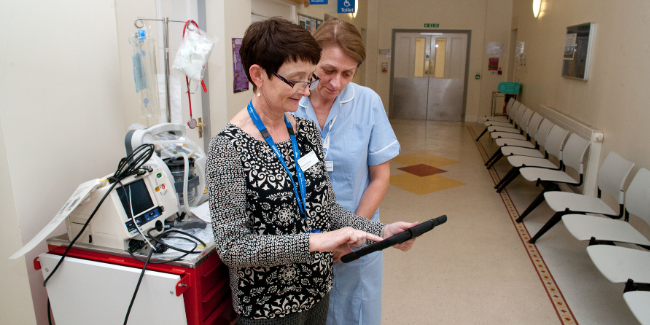
It was back in December 2014 that the original Knowledge for Healthcare strategy was published and as we embark on the second phase, which will run until 2026, I feel it is important to look at how far we have come.
The central proposition of the first strategy was:
“Information will increasingly become the currency of healthcare in the future, and our ability to access, understand and interpret it at individual and population level will be a key determinant in the future success of our healthcare
system."
Unsurprisingly to those in the Knowledge and Information field and increasingly in healthcare this premise endures.
A key insight, which in our view has made a considerable contribution to the ability of the NHS to leverage knowledge to deliver real improvements in health outcomes, is that technology on its own without the input of information professionals
will not deliver improvement. With that in mind three things have taken place to realise the central vision of Knowledge for Healthcare, firstly building proactive and customer-focused services, secondly developing knowledge
infrastructure across the healthcare ecosystem and finally creating a skilled and professional Library and Knowledge Service workforce.
A Million Decisions, a campaign, run in partnership between Health Education England and CILIP, has highlighted how Government and health service providers can make use of the skills of librarians and knowledge specialists to address
the requirement in the 2012 Health and Social Care Act for decisions in the healthcare sector to be evidence-based. The campaign has highlighted the many ways in which librarians and knowledge specialists have facilitated evidence-informed
decision-making by management and clinical staff, delivering real efficiency savings and improvements in health outcomes.
In our view, Knowledge for Healthcare has been a remarkable success through its first phase. We can now look ahead to the next 5 years in the knowledge that it has a track-record of proven impact to bring to bear in helping the
NHS and healthcare community mitigate risks and maximise opportunities on behalf of patients, their families and carers and taxpayers. As we move into that second phase, we would encourage the leadership of Knowledge for Healthcare to maintain its focus on people over systems – it will be the continued focus on human infrastructure of skilled and ethical professionals that helps to deliver on the promise of evidence-informed decision-making across healthcare.
A recently published international literature review suggests the potential for significant savings of time for users and expenses for health organisations from using a
Library and Knowledge Service - a median of $2.4 benefit for every $1 cost. Health Education England commissioned an independent study.
Assuming the international findings are applicable to the NHS, this suggests that the service is potentially already generating an overall economic benefit of £132m per annum for the NHS, a net economic benefit of £77m per annum for
the NHS. Furthermore, if the NHS were to achieve target staff ratios (1 librarian for every 1250 NHS staff), this net benefit could potentially increase from £77m to £106m per annum relieving pressure on an already over-burdened system
and on hard-pressed clinical staff.
Most of all, we look forward to working with Health Education England to build on the insights and lessons learned from this successful first phase in order to shape not only our work together, but the future direction of the knowledge,
information and library profession.
To read the full strategy, a summary or download and Easy Read version go to Knowledge for Healthcare.
Find out more about the national NHS Knowledge and Library Services team.



